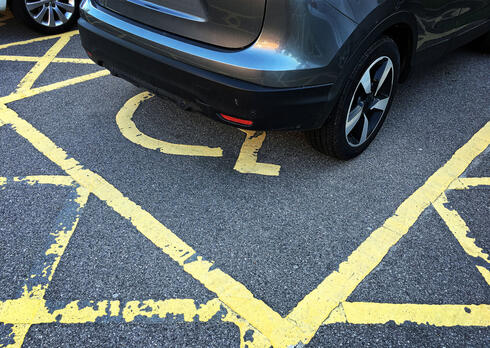Disabled parking crackdown: ‘Instead of rebuilding our lives, we’re forced to fight bureaucracy’
By Sivan Hilaie, Shira Kadari-Ovadia
Copyright ynetnews

Last December, Lahav 433 unit, a crime-fighting organization within the Israel Police, uncovered a criminal network that fraudulently issued thousands of disabled parking permits, exploiting loopholes in the Ministry of Transport’s online system and using forged documents. Authorities were alarmed by the sudden spike in permits — from 90,000 to about 650,000 in just five years. Following the scandal, the Ministry froze new permit issuance, extended the validity of existing permits by six months and later introduced a stricter, more detailed procedure. The goal of the new rules is clear: to prevent fraud and ensure permits go only to those who truly need them. But in practice, the lack of clear communication on updated criteria has caused long delays, uncertainty and bureaucratic hurdles, leaving thousands of legitimate permit holders without valid tags and facing potential fines. The issue is now before the Knesset Economics Committee, which is holding a hearing on the obstacles affecting those who genuinely require permits. Sharon Unger, 54, of Kiryat Ata, first received a disabled parking permit in 2017 due to cancer, diabetes and related complications. He has had to renew it annually. Following the fraud scandal, his most recent renewal attempt was rejected. “Every year it’s approved. This time, they said there’s no evidence of reduced mobility. I don’t understand,” he said, noting he struggles with severe pain after recent surgery. Karin Cohen, injured in a car accident at age 24, suffers from chronic back and nerve damage and a limp in her right leg. She held a permit for 15 years but recently had her renewal request denied. “They said my disability is only moderate,” Cohen said. “I’ve dealt with chronic pain since the accident, carefully plan every trip outside, and I still don’t qualify? Instead of helping us live normal lives, we’re battling bureaucracy.” Another applicant, Sarit, has been disabled for ten years following surgery. Despite presenting current medical documentation, her renewal was delayed for months, forcing her to repeatedly pay parking fines. “I’ve had to cut back on food and medicine to afford a lawyer to fight this. We’re not second-class citizens — we just want to park legally,” she said. Jean Levy, 70, a fully disabled wheelchair user, has been waiting since May to renew his permit. “I’ve submitted all documents, but the website says it’s under construction. When I call, I’m told to wait patiently. There’s no one to speak to,” he said, adding that tens of thousands of disabled people face similar delays. Alex Friedman, chair of the organization “Disabled, Not Half a Human Being,” said stricter criteria have created backlogs that harm many genuine applicants. “On the other hand, the reform is necessary to stop the chaos that plagued parking permits for years,” he said. Ron Notkin, of the news portal Shavim, noted that administrative extensions are not enough. “We received dozens of complaints from people unable to renew their permits. Only court petitions have forced the Ministry to respond,” he said. The Ministry of Transport defended the changes as a historic step to end years of improper or fraudulent permits. “After decades of unauthorized permits, we decided to change the issuance method and stop fraud,” the Ministry said in a statement, adding that the reform is being implemented gradually due to the sensitivity of the issue. “The goal is clear: permits should go only to those eligible, ensuring genuine disabled users have accessible parking.” Already, the Ministry reports a decline in unauthorized permits, improving access for those who truly need them.



